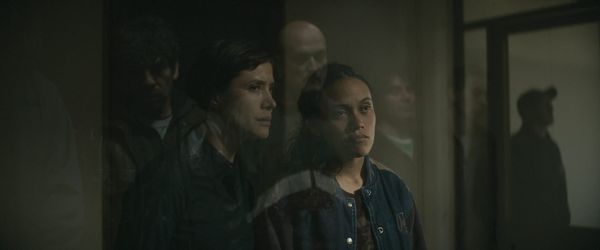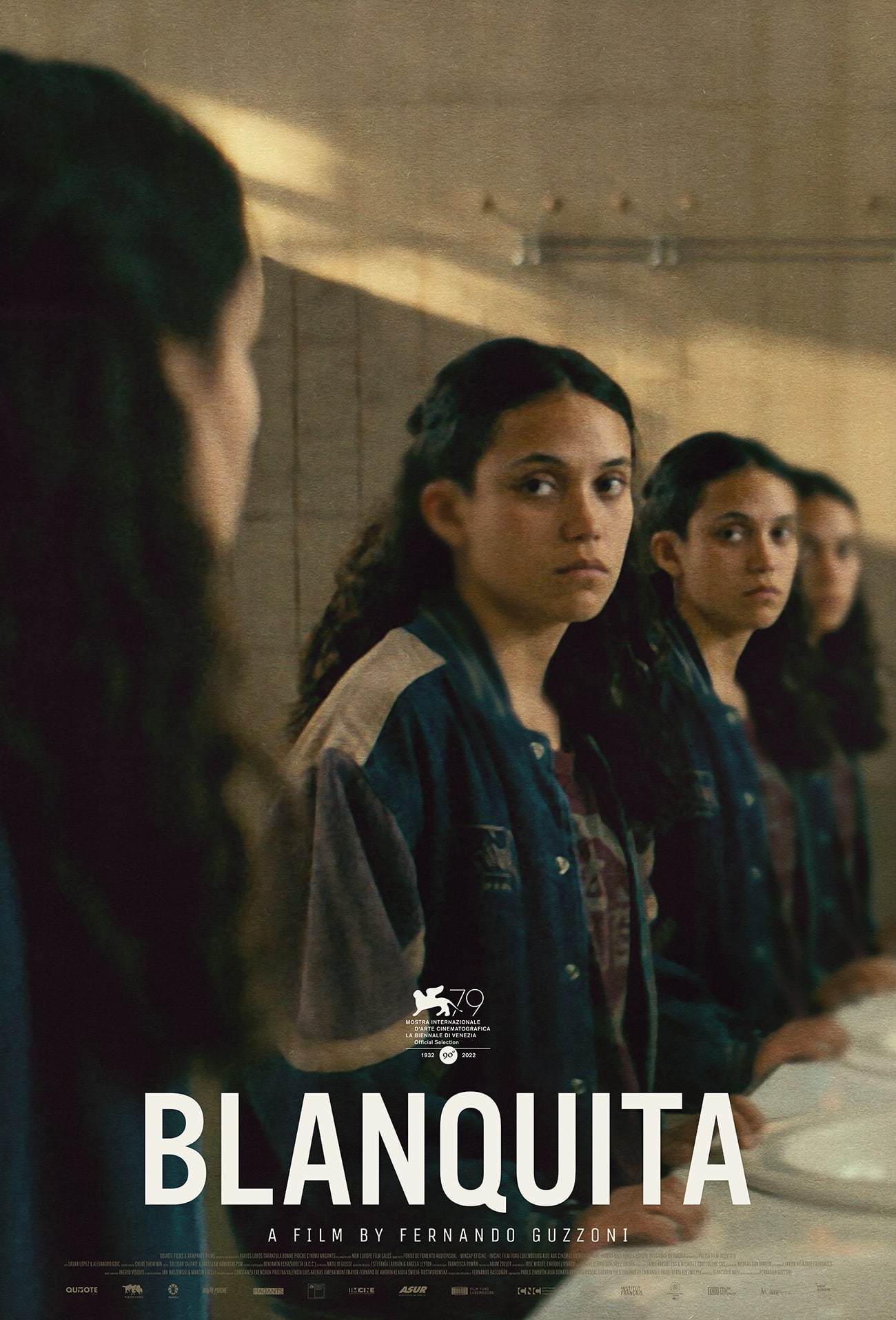Eye For Film >> Movies >> Blanquita (2022) Film Review
Blanquita
Reviewed by: Jennie Kermode

“Why do you go by Blanca and not Blanquita?” the protagonist of this film is asked about halfway through, before being told that the latter is a much prettier name. There’s an implicit assumption there which explains something of the difficulty which victims of child abuse have in fitting into society and therefore in being accepted as good witnesses. Some girls have good reason for not wanting to be thought of as pretty, and for rejecting diminutives which emphasise youth and vulnerability.
Chile’s 2023 Oscar submission, this film is based on the Claudio Spiniak case, which began in 2003 and became notorious throughout the country. Spiniak was a wealthy businessman accused of running a child abuse ring; although he was eventually sentenced on multiple counts of sexual assault (serving a prison sentence which ended in 2013), several of his co-accused were not. The film is likely to play very differently to viewers who are familiar with the case and those who are not, though it’s a powerful experience which raises a lot of complex questions for both groups.
Blanca (ably played by Laura López) is an 18-year-old single mother who works at the orphanage where she found shelter as a child, carry out domestic tasks and assisting the beleaguered Father Manuel (Alejandro Goic) in caring for its current generation of dependents, many of whom are severely traumatised and display all manner of difficult and anti-social behaviours as a result. She is particularly close to Carlos (Ariel Grandón), who is having a rough time as he tries to speak to the authorities about the sexual abuse which he has suffered. The case is closed when a doctor rules that the damage to his mental health is too severe and that testifying in a court could kill him. Father Manuel is frustrated. It’s not the first time he has seen this happen. Subsequently, we see him introducing Blanca to an influential senator and explaining that seeing what Carlos went through has led to her recovering repressed memories of her own, which go on to emerge in great detail.
It doesn’t require much insight to figure out what is going on here. Blanca’s statements are compelling. She is able to provide a lot of detail, but behind the scenes, she keeps questioning Carlos and others about their experiences. Medical examinations prove that she has been sexually abused – she explains that she was in the orphanage because of what happened to her at home – but it’s impossible to tell the age of her injuries. The fact that one of the men she is accusing is himself a senator (the real case saw accusations made about several leading politicians, mostly members of the Pinochet-supporting Independent Democratic Union (UDI)) means that her story makes headlines, adding to the scrutiny and pressure she is under. When she wavers, Father Manuel pushes her to go on.
Of course, regardless of the truth of Blanca’s specific allegations, this is a process of retraumatisation. Director Fernando Guzzoni isn’t really interested in building up mystery around her accusations. He focuses heavily on her psychological experience and the way that she shifts from confidence to doubt to straight-out panic before finally – when her situation is at its most desperate – finding her power. He is also interested in the very different ways in which individuals, Chilean society, and the country’s legal and political elite respond to claims of wrongdoing levelled at people in different social classes. Blanca never feels ashamed of her actions, arguing that it’s another way of expressing and getting at the truth. The men she accuses don’t seem ashamed either (though we are offered other evidence to suggest their guilt), but they are confident that they will be protected. Blanca’s fate is less certain.
The moral complexity of this situation is compounded by Father Manuel’s role in it all. He clearly has a financial motive, but given that he wants the money to help him look after abuse victims in a desperately under-resourced situation, that might be somewhat understandable. Questions arise around his right to put Blanca in this situation, and the degree to which it might be legitimate to sacrifice her in order to help or protect other children and young people. On one occasion, we see him meeting with a bishop who orders him to stop. This scene will seem a little more ambiguous to Chileans who recall that a bishop was amongst those accused in the Spiniak case. Here, Father Manuel argues that it would be a good thing if the Catholic Church were seen to stand against paedophiles sometimes, but does that justify his choices? There is an extent to which the bishop’s words might be seen not simply as moral or political positioning, but as wisdom intended to protect Blanca and Father Manuel himself.
Elsewhere in the film, little details from the real case filter through or are repositioned to let the story flow – something which is, in itself, a different way of getting at truth. We see little of the accused men, Guzzoni apparently wary of letting viewers be distracted by certain bizarre behaviours, but the issue of superstition, a pertinent factor in the case, comes up when the police search an estate where Blanca claims to have been held for any sign of a missing nine-year-old girl. A psychic is invited in to help them. At the time, at least, this wasn’t particularly unusual in Chile. The psychic seems to be the only person who sees Blanca clearly – and with sympathy – straight away. There is a hint here of further divides within society, further complications around the matter of who is or is not taken seriously.
There are a lot of myths out there about false accusations and the motives behind them. Guzzoni’s film has been criticised by people who argue that they never happen, or that they are so rare that, in light of how reluctant juries already are to convict, they should not be discussed. In fact, they happen about as often as false accusations of other crimes – in around 2% to 8% of cases – but the picture is complicated by the fact that over 70% of those who make them have previously been raped or assaulted by somebody else. Trauma is a complex thing, and if Blanquita does nothing else, it establishes that somebody who presents with dubious testimony might still be a sympathetic and relatable human being, suffering from real pain.
Most viewers will find a good deal in the film besides that. Guzzoni has created an intelligent and nuanced work which goes beyond its central subject matter to address the power imbalances and the ease with which states overwhelm individual rights, which are central to the crisis of our times. This knowingly difficult, multi-layered film deserves a wide audience.
Reviewed on: 06 Dec 2022















